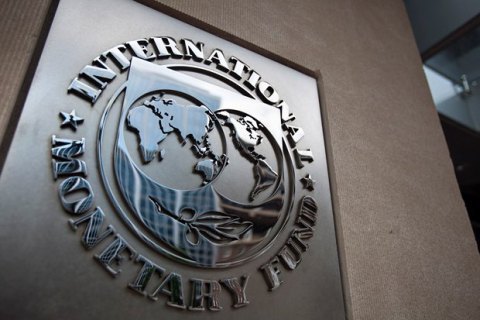The probability of Ukraine's receiving a new loan tranche from the IMF this year is extremely low – say the participants of the expert survey by Gorshenin Institute.
In particular, ex-Minister of Economy of Ukraine Viktor Suslov sees one reason for the probable failure in the last tranche in the government's decisions related to changes in the nation's budget and the increase in the minimum wage. Although it has not been a part of the public debate, such an increase does not comply with the agreements with the IMF laid down in the memorandum. "Whether it will be possible to persuade the mission to somehow approve these decisions, I strongly doubt," said the expert.
Suslov does not believe the next tranche will come any time soon, just like was the case a year ago, when the rate of single social tax has been lowered without the consent of the IMF. The IMF, as is known, reacted negatively, and Ukraine would not receive tranche for several months.
The director of economic programs at Razumkov Center Vasyl Yurchyshyn also said that the problem with getting tranche of the IMF is linked to the formation of the budget. "Sharp fluctuations as the notorious 3,200 hryvnya [minimum wage proposed by the Cabinet] clearly indicate that not all is well [with the government's] understanding the limitations of the budget."
Vasyl Yurchyshyn also draws attention to the low dynamics of reforms, frozen privatization and staled war on corruption. "I do not think, therefore, that Ukraine will have something to offer the IMF as an unconditional guarantee," summarizes the expert. "However, if the IMF agrees for some reasons with the new budget calculations, the chances would increase dramatically. In a sense, the point at issue here is the budget," specifies the director of economic programs at Razumkov Center.
Another factor that may hamper government's access to IMF financing, in the opinion of experts, is the policy of the NBU.
For example, a non-staff adviser to the President of Ukraine, the former deputy Minister of Finance of Ukraine Ihor Umanskyy notes that far from all IMF conditions are complied with, two blocks of issues that that may bring negotiations into a deadlock are the activities of the central bank and bills that the Verkhovna Rada has failed to adopt. "This is a major issue: in particular, our regulations on the gold and currency reserves, while the prospects that these problems will be fixed are pretty dim yet."
Viktor Suslov also draws attention to the failure to comply with the requirements of the IMF in terms of net foreign exchange reserves and rehabilitation of the banking system. "There are provisions that are differently construed, including Ukraine's need to address the problem with one the largest bank in Ukraine. Everybody knows [the bank in question], but avoid to call the name etc," said the expert.
He also notes that "even the US elections, to an extent, will affect the resolution of these issues, since the policy of the new US administration with regard to Ukraine is yet unclear, or rather, not articulated."
At the same time, Vasyl Yurchyshyn believes that the reverse is also true: the non-issuance of the next tranche will mean that the IMF does not recognize the successes of Ukraine, and this will have negative image implications. Among other things, "it could significantly affect the new US administration's view of Ukraine," says the director of economic programs at Razumkov Center. "This is a very important psychological moment, the successful negotiations with the IMF and the successful continuation of cooperation. In many respects, the program of Ukraine's funding next year will depend on that IMF mission," the expert believes.
Other experts also emphasized the implications of the loss of face.
"For Ukraine, the IMF is first and foremost a 'traffic light'. If there is no program, no extension of it, it's a red light for the rest of our institutional partners, and hence out capacity to borrow and provide funding for the state budget deficit. Our program of borrowing is almost halted, and privatization tends to zero figures, and, as a result, virtually no funding. At the end of the year, when the expenditure part must be fulfilled in full, it will be quite a serious problem. In fact, we return to the situation of Azarov, who would create, often artificially, a treasury deficit for his own purposes. Only in our case it won't be artificial. This means that the Ministry of Finance starting mid-November, will face problems with uncovered budget expenditures, and with covered expenditures - by the end of December," emphasizes Umanskyy.
"The [IMF] tranche was important to ensure that Ukraine has strengthened credibility to its fiscal policy. The very fact of receiving the next tranche is very important to reinforce the confidence of investors, especially since Ukraine is going to float its bonds on financial markets next year. The failure to receive this tranche will in the least stir a more cautious attitude. And in January, there will be another danger: the court about the three-billion debt of Ukraine before Russia. There is high probability that Ukraine may lose this lawsuit. All of this would have negative impact on the further development of the situation," Suslov concluded.








